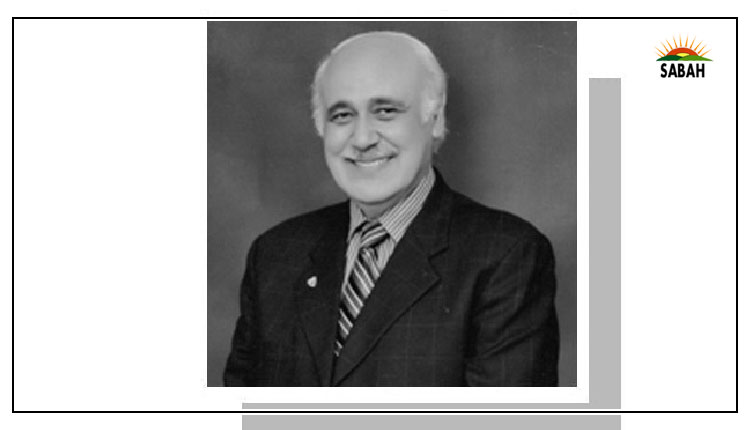The last Pakistani…F.S. Aijazuddin
MANI Shankar Aiyar is the last Pakistani left in India. It is his second favourite country. It was once an option available to millions of Indian Muslims. Since 1947, Indian Muslims have witnessed with disappointment Pakistans descent into democratic dementia and irresponsible insolvency. They would prefer (like the Buddhists in medieval times) to quit the subcontinent and migrate to more hospitable shores.
Two periods in Manis long life (he is 83 years old) have conditioned his personality, his career, and his literary output. The first was the stint he spent as Indias consul general in Karachi (1978-82). It provided a seemingly bottomless reservoir of material which he has used in various books. His Memoirs of a Maverick: The First Fifty Years (1941-1991) was released last year.
He intended his next book to be an autobiographical sequel. His publisher, though, felt it was dominated by the second Himalaya in his life the late prime minister Rajiv Gandhi. They suggested a biography of Rajiv instead. Hence, Manis fresh book The Rajiv I Knew And Why He Was Indias Most Misunderstood Prime Minister (2024).
Ever since 1992, when Mani wrote his affectionate memoir Remembering Rajiv within a year of Rajivs assassination, Mani has been more loyal to the memory of Rajiv Gandhi than Rajivs widow Sonia and her Congress party have been to him.
Mani regards Rajivs visit to Benazir as a high point.
The book opens with a chapter on Rajivs domestic successes: The accords with Punjab, Assam, Mizoram, and Darjeeling. The second discusses the internal controversies that plagued Rajivs political career: the Shah Bano case, the communal Pandoras box of Babri Masjid, Operation Brasstacks, IPKF, and the Bofors imbroglio.
Most leaders prefer to cruise in international waters than to be buffeted by domestic squalls. Rajiv was no exception. In the third chapter on Rajivs foreign policy initiatives, Mani lauds Rajivs efforts on nuclear disarmament, improving relations with China and Pakistan, Indian intervention in the Maldives in 1988, and the establishment of the AFRICA Fund in 1986. Mani provided Rajiv with the catchy acronym: Action For Resisting Invasion [in Mozambique], Colonialism [in Namibia], and Apartheid [in South Africa].
The fourth chapter Innovative Domestic Initiatives is a checklist of Rajivs radial interest in technology missions, Zonal Cultural Centres and Apna Utsavs, Island Development Authority, drought-proofing and the economy.
The concluding fifth chapter is on the Panchayat(i) Raj initiative. Manis untiring efforts as Indias first ever cabinet minister for panchayat raj and as chairman of the Expert Committee on the Panchayats (2011-13) reached its apogee when the committee produced a five-volume report. He dubs it an Encyclopaedia Panchayatica. To Manis chagrin, that report now moulders in forgotten cupboards, ignored by Modis government.
Mani tried to bring the panchayats centre stage. Instead, in 2013, Mani was eased off-stage by Congress president Sonia Gandhi.
To Pakistanis, Manis comments about Pakistan will be of primary interest. He deals openly with Operation Brasstacks, launched with Rajivs approval and conducted in 1986/7.
That provocative operation bigger than any Nato exercise and the biggest since World War II took place on the vicinity of the Pakistan border, involving half a million troops half the Indian Army within a hundred miles of Pakistani territory and the deployment of Indian naval forces for an amphibious naval trial assault in the Korangi creek that led from the sea to Pakistans commercial capital, Karachi.
On January 28, 1987, President Ziaul Haq retaliated smokelessly by allowing Dr A.Q. Khan to reveal to the Indian journalist Kuldip Nayar that Pakistan had gone nuclear. Nayar (hoping to earn more than kudos for this explosive disclosure) deliberately withheld publication of this till March 1, by which time confrontation had cooled to consultation.
Despite the flip-flop cordiality between Rajiv and Ziaul Haq (they met at least six times), Mani regards Rajivs landmark visit to the newly elected Benazir Bhutto in July 1989 as the high point of his years in Rajivs PMO. Mani drafted Rajivs moving speech: Why must we go abroad to meet each other? Why can we not meet in each others hearths and homes? It is incumbent on us to give joyful expression to the natural affinities that bind our peoples.
Manis recollection of that speech bulges with pride: It was the distilled essence of all I had learned of Pakistan and Pakistanis in my three years in Karachi. And here it was pouring forth from the mouth of the prime minister!
Despite Manis unquenchable optimism, his dream of an uninterrupted, uninterruptible relationship between India and Pakistan will remain unfulfilled. Certainly, as long as his nemesis PM Modi and the BJP continue to rule India. That could go on until 2039, when Mani will be all of 97 years old.
Manis janambhumi is Lahore, in Pakistan both magnets he finds impossible to resist.
Courtesy Dawn












